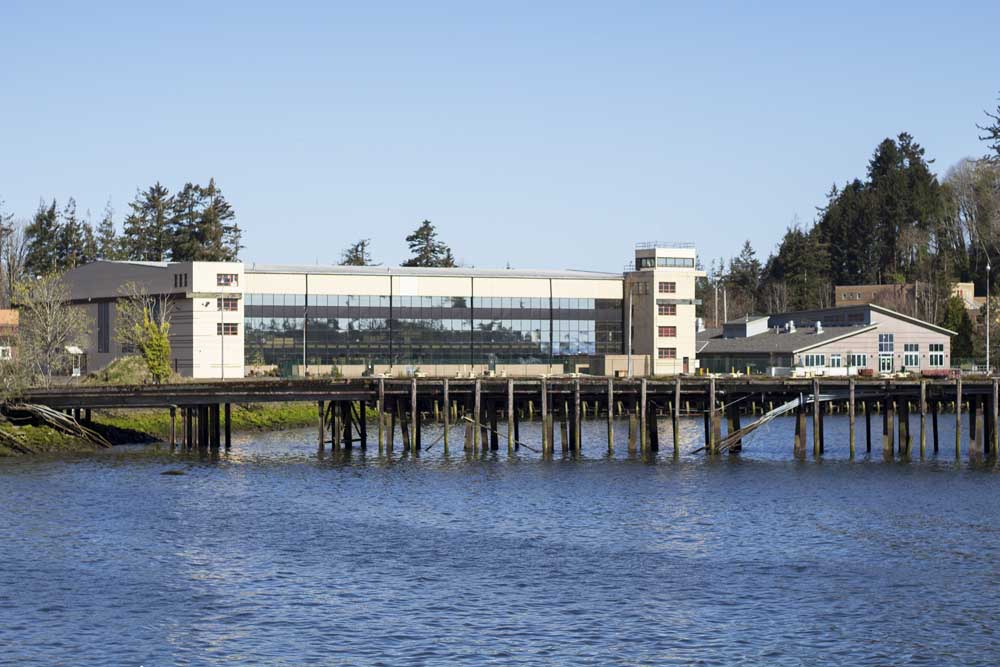Editor’s Notebook: Why was Meriwether Lewis a silent observer?
Published 5:00 pm Thursday, May 20, 2010
A local attitude toward Lewis and Clark is perhaps best summarized near my house, up in the vicinity of pathways traversed by the explorers during their ultimate November 1805 excursions between Station Camp and the Pacific Ocean.
In a two-foot-diameter cement pad left over from a sewer-line project, some anonymous workman used a stick to engrave the words “Historic pee spot,” complete with a rather realistic accompanying indentation. This was in about 2003, well before the main tsunami of bicentennial publicity.
I admire it as a pithy editorial remark about the danger of attaching historical significance to every twig and pebble. It is a humorous rebuttal to all of of us who were competing to see how poetically enraptured we could become about a bunch of East Coast guys tromping around in rotting elk skins.
Everywhere from Gettysburg to Rome, you’ll encounter this same sly rejection of enthusiasm about historical matters. A significant chunk of any population will always regard history as no more valuable than yesterday’s coffee grounds. No amount of quoting William Faulkner that “The past is never dead. It’s not even past” will convince them that we are tightly woven into a fabric of intricate patterns designed long ago.
Even after our stunning success in convincing Congress to expand the national park to include pivotal Lewis and Clark sites like Station Camp, there are plenty here who think the whole deal is silly elitism with no real bearing on local culture or economic prospects.
They could not be more wrong. Our children’s children will be able to make mortgage payments partly thanks to jobs that owe their existence to Lewis and Clark and our area’s stunning wealth of other history. If we succeed in parlaying the park into a bigger heritage area, the benefits will be correspondingly greater – helping preserve the future viability of all sorts of non-tourism jobs.
Even so, it is a brave man who writes a new Lewis and Clark book these days. What’s left to say? Plenty. In fact, River of Promise: Lewis and Clark on the Columbia is the book we all wished we had back in 2005. It is rich in locally relevant details and analysis of the months the expedition spent in the Columbia watershed and what are now Clatsop and Pacific counties.
Dave Nicandri, director of the Washington State Historical Society, is a smart and charming guide to a surprisingly under-appreciated time. Our homeland is where success was achieved. You would think the intellectual powerhouse of the party, Meriwether Lewis, would be writing the Wild West equivalent of minute-by-minute CNN coverage. But instead it’s almost as if a technical glitch struck just as Neil Armstrong was about to set foot on the moon, leaving us with only occasional snatches of overheard conversation from which to interpret the most famous adventure of our own time.
In a frustrating dereliction of duty, Lewis went completely mute in the historical record for more than two months, covering the entire trip down the Columbia from Sept. 22 to Nov. 29, 1805. “From his first days west of the Continental Divide in the summer of 1805 until he recrossed the Bitterroot Mountains in June 1806, the country drained by the Great River of the West confounded Meriwether Lewis,” Nicandri observes.
Lewis became prone to striking off on his own or with small groups of men, for instance visiting the ocean from the expedition’s base camp at McGowan days before William Clark’s much more storied foray around North Head and several miles up Long Beach Peninsula. Nicandri speculates that Lewis perhaps recorded an independent account of this victory lap and subsequently lost it. We’ll never know.
Nicandri’s scholarship and interpretation clarify our debt to William Clark, both for recording much of what we do know about the expedition’s time here and for his calm leadership. This expedition also included several others who recorded observations that serve to illuminate the fall and winter of 1805 – a rich vein of recollection that Nicandri mines with great results.
Much as anything, I was struck by Nicandri’s revised view of the “vote” at Station Camp, an episode about which he and I were both perhaps overly enthused at one time. But in some ways, I find his new interpretation of it as essentially a “town meeting” just as meaningful and more touching.
“How appropriate and quintessentially American then, that the intensely shared and transcontinental experience of the Expedition for Northwestern Discovery should terminate physically within sight of the Pacific Ocean – and ethically with some of the trappings of a community gathering,” Nicandri writes.
This example deserves to be an inspiration to all Americans in these fractious times.
– M.S.W.
Matt Winters is editor of the Chinook Observer





